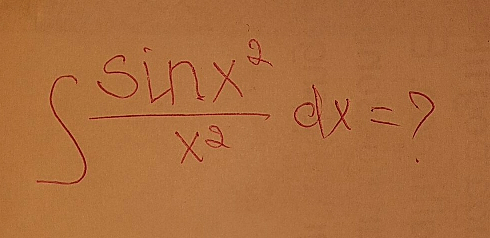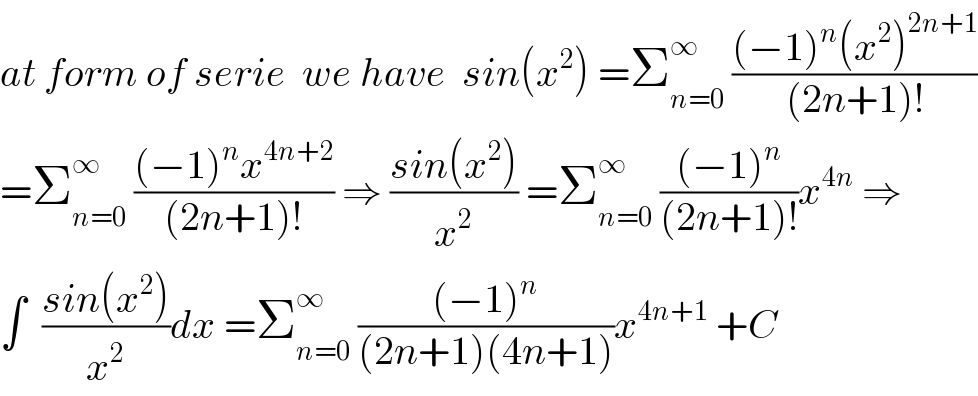
Question and Answers Forum
Question Number 75830 by Master last updated on 18/Dec/19

Commented by Master last updated on 18/Dec/19

Commented by turbo msup by abdo last updated on 18/Dec/19

Commented by Master last updated on 18/Dec/19

Commented by mathmax by abdo last updated on 19/Dec/19

Commented by abdomathmax last updated on 19/Dec/19
![let f(x)=∫_0 ^x ((sin(t^2 ))/t^2 )dt ⇒ f(x)=[−((sin(t^2 ))/t)]_0 ^x −∫_0 ^x (−(1/t))(2t cos(t^2 )dt =−((sin(x^2 ))/x) +2 ∫_0 ^x cos(t^2 )dt ∫_0 ^x cos(t^2 )dt =Re(∫_0 ^x e^(−it^2 ) dt) and changement it^2 =u give t^2 =−iu ⇒t =(−iu)^(1/2) ⇒ dt =(−i)^(1/2) (1/2)u^(−(1/2)) =(1/2)e^(−((iπ)/4)) u^(−(1/2)) ⇒ ∫_0 ^x e^(−it^2 ) dt =(1/2)e^(−((iπ)/4)) ∫_0 ^(ix^2 ) e^(−u) u^(−(1/2)) du ...be continued...](Q75891.png)
Answered by mr W last updated on 18/Dec/19
![=∫sin x^2 d(−(1/x)) =−((sin x^2 )/x)+2∫cos x^2 dx =−((sin x^2 )/x)+(√(2π))∫cos [(π/2)((((√2)x)/(√π)))^2 ]d((((√2)x)/(√π))) =−((sin x^2 )/x)+(√(2π)) C((((√2)x)/(√π)))+C with Fresnel integral: S(x)=∫_0 ^x sin (((πt^2 )/2))dt C(x)=∫_0 ^x cos (((πt^2 )/2))dt](Q75837.png)
